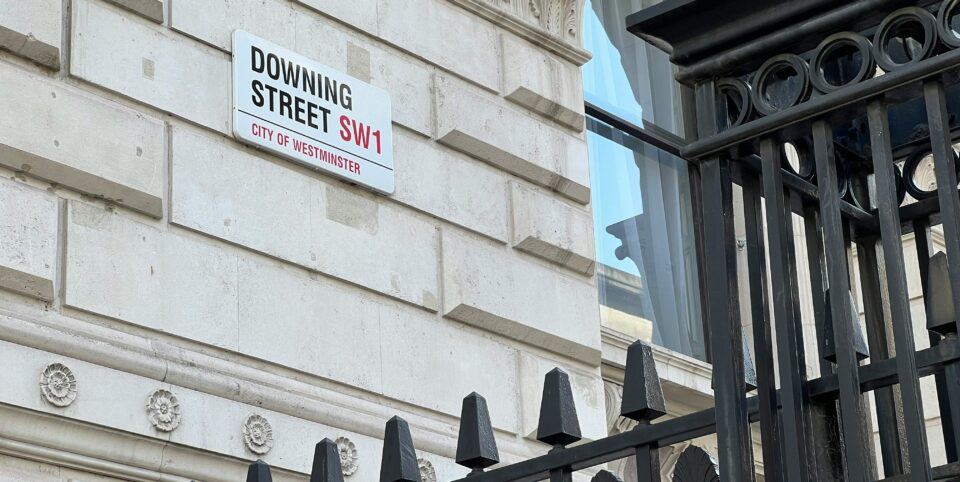Contact
020 4515 6728
info@ccameron.co.uk
Charles Cameron & Associates
Blackfriars Foundry
154-156 Blackfriars Road
London SE1 8EN
Spring Budget 2024
April 25, 2024
Information published was correct at the time of writing
A turn of events for landlords and investors

The 2024 Spring Budget on 6 March set the nation’s course for the future and introduced several changes that will impact landlords, particularly those who own Furnished Holiday Lets.
In this article, we’ve looked at some of the key points that every landlord should know and is based on the currently available information at the time of writing.
STAMP DUTY LAND TAX ADJUSTMENTS
One of the key changes announced pertains to the Multiple Dwellings Relief within the realm of Stamp Duty Land Tax. Historically, Multiple Dwellings Relief offered tax relief for purchasers acquiring two or more dwellings in a single or linked transaction, allowing the tax calculation to be based on the average value of the dwellings rather than their total combined value. However, from 1 June 2024, this relief will no longer be available, marking a significant shift in tax policy.
FIRST-TIME BUYERS’ RELIEF MODIFICATION
In another notable alteration, the conditions for claiming Stamp Duty Land Tax First-time Buyers’ Relief have been revised. Previously, individuals purchasing a new residential lease through a nominee or bare trust arrangement were ineligible for this relief due to the application of special rules.
These rules designated the nominee or trustee as the purchaser, not the individual, disadvantaging victims of domestic abuse who used such arrangements to obscure their new address from former partners. Effective from 6 March 2024, the eligibility criteria have been expanded to include individuals employing these arrangements, aligning them with those purchasing residential freeholds and pre-existing leases under similar terms.
CAPITAL GAINS TAX RATE REDUCTION
Moving on to Capital Gains Tax, the Spring Budget 2024 outlined a reduction in the higher rate applicable to the sale of residential properties. For higher rate taxpayers, the rate decreases from 28% in the 2023/24 period to 24% in the 2024/25 tax year. This adjustment provides a more favourable capital gains scenario for those landlords selling residential properties.
FURNISHED HOLIDAY LETTINGS TAX REGIME CHANGES
The Furnished Holiday Lettings tax regime is marked for abolition from 6 April 2025, heralding a significant shift in the taxation landscape for property rentals in the UK. At the time of writing, the changes have yet to be fully disclosed, but it is clear that they will impact landlords operating within this sector.
This move seeks to streamline tax processes by eliminating the distinction between short-term furnished holiday lets and longer term residential lets. The forthcoming changes mean that landlords will no longer need to segregate these income streams for tax reporting purposes. The anticipation surrounding the draft legislation is palpable, with stakeholders eagerly awaiting the specifics of the new measures.
TAX CREDIT REPLACES DEDUCTION FOR INTEREST
From the 6 April 2025, the way businesses operated by individuals handle interest will transform. The previous model, which allowed interest as a deduction, will be replaced by a model offering relief as a 20% tax credit against the individual’s tax liability. This adjustment signifies a decrease in tax relief for interest for higher rate taxpayers, who will now only receive relief at the 20% rate.
CHANGES TO CAPITAL GAINS TAX
The disposal of assets under the Furnished Holiday Lettings tax regime currently enjoys the potential for business asset disposal relief, with eligible gains taxed at a favourable 10% rate up to a £1m lifetime limit. However, this is set to change from April 2025, when such gains will attract Capital Gains Tax rates of 18% or 24%, depending on the profit band.
Additionally, Capital Gains Tax rollover relief, which allows for the deferral of tax on gains when a replacement qualifying asset is purchased, will narrow its scope only to include investment properties in cases of compulsory purchase.
WITHDRAWAL OF CAPITAL ALLOWANCES
As we approach the April 2025 threshold, it is essential to note that capital allowances for expenditure on qualifying assets in a Furnished Holiday Lettings business will be phased out. Despite this, businesses appear to be able to claim deductions for the cost of replacing domestic items, offering a semblance of relief amidst the tightening regulations.
IMPLICATIONS FOR PENSION CONTRIBUTIONS
The impending changes also cast a shadow over pension contributions, with tax relief for individuals’ contributions being pegged to either £3,600 or 100% of net relevant earnings, whichever is higher. Given that profits from Furnished Holiday Lettings currently qualify as relevant earnings, individuals relying on Furnished Holiday Lettings profits for pension contributions may find themselves navigating a complex financial landscape post- April 2025.
UNANSWERED QUESTIONS AND THE PATH FORWARD
The transition towards the abolition of the Furnished Holiday Lettings tax regime raises numerous questions, particularly concerning the fate of capital allowances claims and the valuation of assets upon business closure. As the property rental sector braces for these changes, the promise of forthcoming draft legislation offers a glimmer of hope for clarity and guidance.
VAT THRESHOLD ADJUSTMENT
The UK government announced a significant update to the VAT registration and deregistration thresholds, effective 1 April 2024. Specifically, the VAT registration threshold has increased from the previous £85,000 to £90,000, while the deregistration threshold has risen from £83,000 to £88,000.
This development represents a strategic move to alleviate the administrative strain on smaller enterprises, facilitating a more conducive environment for their growth and sustainability. However, it is pertinent to note that these revised thresholds will be subject to a freeze, the duration of which remains unspecified by the authorities.
CAPITAL GAINS TAX ADJUSTMENT FOR RESIDENTIAL PROPERTY SALES
In a parallel fiscal adjustment, the Capital Gains Tax rates applicable to the sale of residential properties by higher rate taxpayers have undergone modification in the tax year 2024/25. The rate has decreased from the current 28% to 24%, whilst the basic rate remains unchanged at 18%. This policy shift aims to invigorate the property market by making it more financially appealing for both investors and homeowners to engage in property sales.
TRANSITIONING TAXATION FOR NON-UK DOMICILED INDIVIDUALS
A pivotal change is set to occur concerning the taxation of non-UK-domiciled individuals. Effective from 6 April 2025, the existing remittance basis of taxation will be abolished, giving way to a residence-based regime. Under this new framework, individuals who opt into the regime and have not been UK tax residents in the last ten years will be exempt from UK tax on any foreign income and gains for their first four years of tax residence.
Conversely, those who have been tax residents in the UK for more than four years will be required to pay UK tax on their foreign income and gains. Furthermore, the government plans to implement transitional arrangements for current non-UK domiciled individuals utilising the remittance basis, including options for rebasing the value of capital assets and temporary tax exemptions.
ENHANCEMENTS TO STAMP DUTY LAND TAX LEGISLATION
Turning our attention to the Stamp Duty Land Tax legislation, recent amendments have been introduced to bolster the exemption for purchases of social housing by registered providers, especially those partially funded by public subsidy. Historically, outdated legislative references and definitions have occasionally subjected such transactions to Stamp Duty Land Tax, contrary to policy intentions.
The recent amendments aim to rectify this by updating the list of public subsidies and removing public bodies from the SDLT 15% higher rate charge. These adjustments are expected to significantly reduce the tax burden on public entities and social housing providers, ensuring that public funds are utilised more effectively.
Don’t forget, our professional friendly advisors are on hand to support you and can help you explore all of your options.



